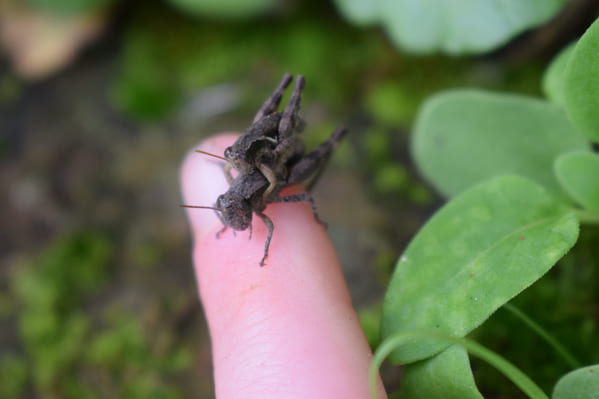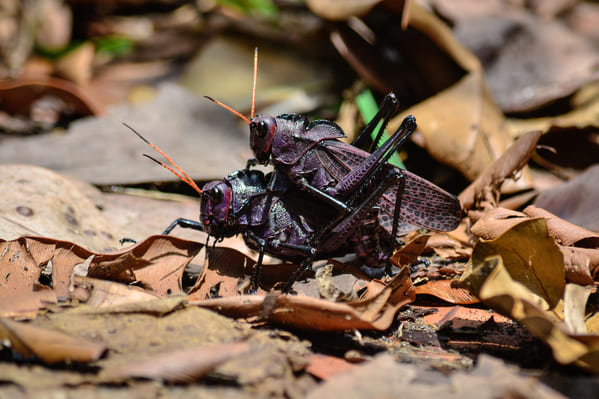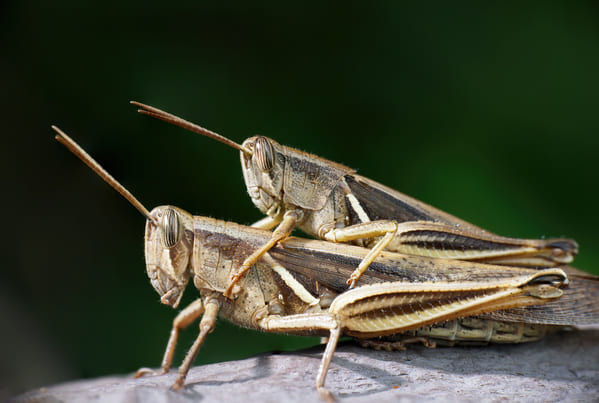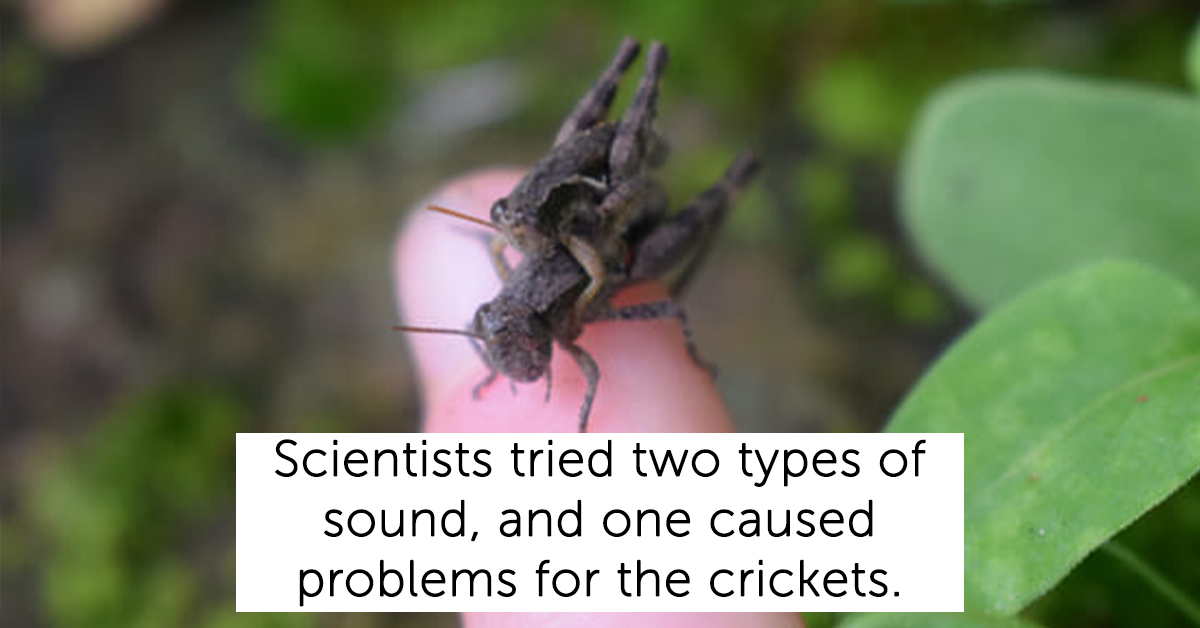Have You Heard? Human Noise Pollution Is Ruining Sex For Crickets
Humans need to quiet down. We’re a bunch of noise-making idiots. Sometimes, I talk just to fill the space with sound. It’s “annoying” and “a sign that I don’t respect other people’s time and attention spans.” That’s what I’m told by those close to me.
There’s another reason humans need to be less noisy: it’s ruining cricket sex.
Yes. Crickets are trying to get it. They find potential mates through sound. If you’re blasting WAP from your car, the crickets can’t hear. If the crickets can’t hear, they don’t mate “correctly.” If they don’t mate, then my bearded dragon will starve to death due to a lack of crickets.
Do you really want to live with that on your conscience? No.
You are required to read about this study on human noise pollution ruining cricket mating rituals:
First, let’s look at how crickets mate.

Damn. Didn’t mean to make everyone reading this too horny. I know you haven’t been on a real date in quite some time. These crickets are so comfortable mating, they’re willing to engage in an inter-species threeway that includes a human finger.
Fun fact, females mount the male. Again, sorry to turn you on. But that’s what we’re seeing here.
Female crickets find the best choice of mate by listening to the male cricket’s “song.” The song is loud and you’re probably familiar with it. That sweet sound of crickets you hear from your porch is a male booty call. If it’s particularly loud and attractive to female crickets, it might be a sign that the male recently had an aggressive encounter with another cricket.
According to one study, male crickets that recently fought and won an aggressive confrontation celebrated with a “winning” song. In turn, females responded better to that song.
I hate to anthropomorphize a bug, but this smacks of jock behavior being rewarded in nature. It doesn’t mean it’s true for all animals. In fact, most primate females have been known to sneak off and mate with lower-dominance males in their hierarchical social structure.
In case you’re not feeling like an alpha while reading this article.
What does the new study say about human noise and cricket songs?
The study in Behavioral Ecology used two types of sound: ambient sounds or traffic and white noise.
Unsurprisingly, ambient or normal sounds didn’t change the mating habits of the crickets.
However, when traffic noise was played over a male cricket’s song, females often mated with a sub-optimal partner. That’s right. Female crickets were confused by the sounds of human technology and wound up mating with a bug who’s beneath them.

They were duped! Yes, the cricket who sang terribly finally got laid, but at what cost? Now there are a bunch of sub-optimal cricket offspring hopping around playing the crick equivalent to a Smash Mouth song. And they’re making more crickets like them.
It must end.
“Who cares?” You ask. “Let the crickets mate however they want.”

Pictured above: two crickets going at it, one who is having the luckiest night of his life, all thanks to you nerds overusing your car horns.
The reason it matters is this: all bugs have a direct effect on plants, animals, and humans. Bees are having their moment in the sun because we keep messing up their lives, and pretty soon we’ll have no honey or flowers. Cricket poop, you should know, provides nutrients to manage man-made and natural ecosystems. They’re also natural weed killers.
Unfortunately, their process of natural selection is keeping worse singers out there thriving. What happens when we switch to electric cars and stop making so much noise? I’ll tell you what happens. The female crickets suddenly realize they’ve been mating with losers and only one good singer gets noticed from there on out.
Then, every surviving cricket shares the same lineage. A few years go by, and – BOOM! – a plague hits the cricket population and since they’re all weird inbred crickets, they go extinct. No cricket poop means other animals die off until humans are left to eat each other.
We need to quiet down fast before that happened. QED.
H/T CNN

